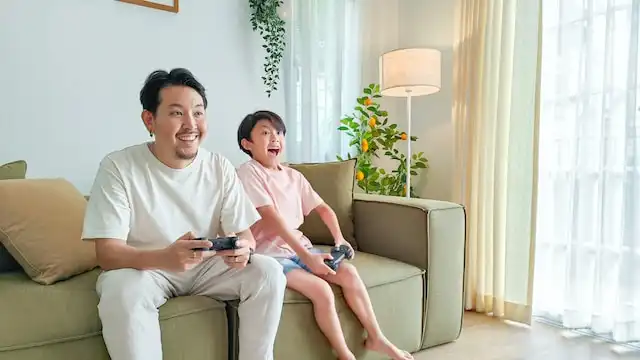In today’s digital age, gaming has become an integral part of many children’s lives. As a parent, striking a balance between your child’s gaming interests and their responsibilities can be a challenge. This guide aims to provide valuable insights and practical tips to help parents foster responsible gaming habits, ensuring that playtime remains enjoyable while fulfilling important responsibilities.
- Open Communication and Education
Effective communication is the cornerstone of responsible gaming. Engage in open and honest discussions with your child about the importance of balancing gaming with other commitments:
- Explain Priorities: Help your child understand the significance of schoolwork, chores, and other responsibilities by discussing their long-term impact.
- Set Expectations: Establish clear guidelines for gaming time and emphasize the importance of adhering to them.
- Educate on Screen Time: Discuss the potential consequences of excessive screen time, including its impact on sleep, physical health, and overall well-being.
- Establish Healthy Gaming Limits
Setting limits on gaming time is crucial for maintaining a healthy balance between play and responsibilities:
- Create a Schedule: Work with your child to create a weekly schedule that allocates specific time for gaming, homework, chores, and other activities.
- Use Time Management Tools: Utilize parental controls on gaming consoles and devices to set daily or weekly time limits for gaming.
- Reward System: Implement a reward system where your child earns additional gaming time by completing tasks and responsibilities.
- Encourage Well-Rounded Activities
Responsible gaming involves promoting a diverse range of activities to ensure holistic development:
- Physical Activity: Encourage your child to engage in regular physical activities such as sports, outdoor play, or exercise to counterbalance sedentary gaming time.
- Creative Pursuits: Foster creativity through hobbies like drawing, painting, music, or crafting to stimulate your child’s imagination.
- Social Interaction: Encourage face-to-face social interactions with friends and family to strengthen relationships and communication skills.
- Monitor Game Content and Playtime
As a parent, it’s essential to be aware of the games your child is playing and the time they spend on them:
- Check Game Ratings: Familiarize yourself with game ratings and content descriptors to ensure the games your child plays are age-appropriate.
- Supervise Online Play: If your child engages in online gaming, monitor their interactions and ensure they are adhering to appropriate online behavior.
- Regular Check-Ins: Regularly discuss your child’s gaming preferences, interests, and any concerns they may have about their gaming habits.
Conclusion
Responsible gaming involves finding a harmonious balance between your child’s gaming interests and their responsibilities. By fostering open communication, setting healthy limits, encouraging diverse activities, and monitoring game content, parents can guide their children toward developing responsible gaming habits. Ultimately, the goal is to create an environment where gaming remains an enjoyable and fulfilling part of their lives while promoting their overall well-being and success in other areas.



